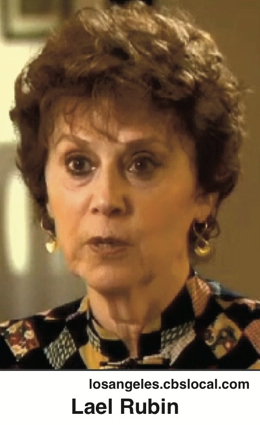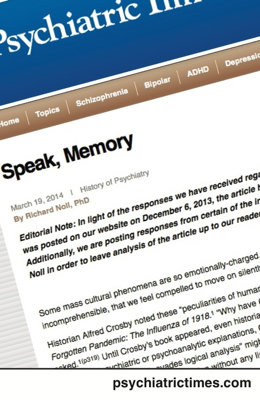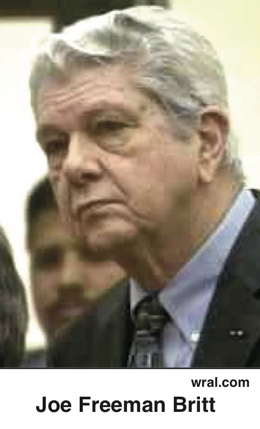Rascals case in brief
In the beginning, in 1989, more than 90 children at the Little Rascals Day Care Center in Edenton, North Carolina, accused a total of 20 adults with 429 instances of sexual abuse over a three-year period. It may have all begun with one parent’s complaint about punishment given her child.
Among the alleged perpetrators: the sheriff and mayor. But prosecutors would charge only Robin Byrum, Darlene Harris, Elizabeth “Betsy” Kelly, Robert “Bob” Kelly, Willard Scott Privott, Shelley Stone and Dawn Wilson – the Edenton 7.
Along with sodomy and beatings, allegations included a baby killed with a handgun, a child being hung upside down from a tree and being set on fire and countless other fantastic incidents involving spaceships, hot air balloons, pirate ships and trained sharks.
By the time prosecutors dropped the last charges in 1997, Little Rascals had become North Carolina’s longest and most costly criminal trial. Prosecutors kept defendants jailed in hopes at least one would turn against their supposed co-conspirators. Remarkably, none did. Another shameful record: Five defendants had to wait longer to face their accusers in court than anyone else in North Carolina history.
Between 1991 and 1997, Ofra Bikel produced three extraordinary episodes on the Little Rascals case for the PBS series “Frontline.” Although “Innocence Lost” did not deter prosecutors, it exposed their tactics and fostered nationwide skepticism and dismay.
With each passing year, the absurdity of the Little Rascals charges has become more obvious. But no admission of error has ever come from prosecutors, police, interviewers or parents. This site is devoted to the issues raised by this case.
On Facebook
Click for earlier Facebook posts archived on this site
Click to go to
Today’s random selection from the Little Rascals Day Care archives….
Click for earlier Facebook posts archived on this site
Click to go to
Today’s random selection from the Little Rascals Day Care archives….
Second thoughts from a ‘ritual abuse’ prosecutor?
 Aug. 17, 2014
Aug. 17, 2014
“I’m not comfortable commenting on any of them at this point in time.”
– Lael Rubin, formerly the lead prosecutor in the McMartin Preschool case, declining to say whether she still thinks the defendants were guilty
That’s not the only eyebrow-raiser in this recent 30-years-after piece by a Los Angeles TV station.
Rubin contends that “The strongest evidence, the physical evidence, the medical evidence, I think was very significant.” But Kevin Cody, who logged more hours in the courtroom than any other journalist, confirms my impression that the prosecution actually produced “zero medical evidence of abuse.”
Finally, Rubin credits the McMartin case with improvements in the interviewing of children: “The criminal justice system, interviewers and police, law enforcement are much more concerned about eliciting information from children, as opposed to giving them clues.”
This is disingenuous. Like John E. B. Myers, Kee MacFarlane and Sylvia Gillotte – Rubin tips her hat to progress but refuses to take the logical next step: admitting the injustices issuing from those McMartin-style interrogations.
SRA apologists flushed from their diploma-papered caves
 March 22, 2014
March 22, 2014
“Editorial Note: In light of the responses we have received regarding this article by Richard Noll, PhD, that was posted on our website on December 6, 2013, the article has been reposted with a modification. Additionally, we are posting responses from certain of the individuals mentioned in the article and from Dr. Noll in order to leave analysis of the article up to our readers.”
– From “Speak, Memory,” Psychiatric Times’ reposted version of Noll’s “When Psychiatry Battled the Devil.”
As pointed out at 1 boring old man, PT’s belated reposting omits this passage:
“New (American Psychiatric Association) work groups for the preparation of DSM-IV were formed. Not surprisingly, none of the former members of the DSM-III-R Advisory Committee on Dissociate Disorders was invited to be on the work group for the dissociative disorders.”
Prominent among those uninvitees, of course, were Dr. Richard Kluft and Dr. Bennett Braun, both of whom broke their silence to accept PT’s offer of space to swat back at Noll. Also responding: Dr. David Spiegel, recently described as “the most influential man responsible” for the inclusion of DID/MPD in DSM-V.
And now Noll has gently rebutted – for the most part, refuted – the SRA apologists’ noisy rebuttals.
It’s been 25 years since the fever-breaking Chicago conference – plus another three months while Psychiatric Times searched its soul and its appetite for litigation. Does the vigorous exchange on the PT site mark the beginning of psychiatry’s overdue reexamination of its SRA era?
If so, that discussion must address not only the causes of the moral panic but also its effects: that is, the wrongful and brutal prosecution of hundreds of innocent defendants such as the Edenton Seven – a subject Kluft, Braun and Spiegel managed to mention not at all in their responses. Are they really so oblivious?
As Indiana governor, future VP let request gather dust

dailyherald.com
Christy Gutowski
Feb. 12, 2017
“One day after Indiana Gov. Eric Holcomb pardoned him for a 1996 armed robbery he did not commit, [Keith] Cooper, 49, said he was grateful to the new governor for doing something his predecessor, Vice President Mike Pence, long had refused to do….
“Cooper spent nearly a decade of a 40-year sentence behind bars before he was released in 2006. Nearly three years ago, after the victims who had identified him as the shooter recanted and DNA evidence pointed to another man, the Indiana Parole Board unanimously recommended Cooper be pardoned. His request, though, sat unsigned on Pence’s desk….
“In response to a request for comment, the vice president’s spokesman did not address the Cooper pardon but said Pence ‘is proud of his record’ as Indiana’s governor.”
– From “Wrongly accused of armed robbery, he says Pence ‘abandoned me‘ ” by Christy Gutowski in the Chicago Tribune (Feb. 11)
It wasn’t easy, but Pence made North Carolina’s former governor seem absolutely eager to rectify a wrongful prosecution.
![]()
Investigation without end, injustice without end?
 May 8, 2015
May 8, 2015
“A new investigation by the governor into ‘culpability’ has some concerned that he may be caving to the political pressure inherent in the pardon process – particularly given the exhaustive review and judicial imprimatur that the (Henry) McCollum and (Leon) Brown cases have already received.
“The original prosecutor, Joe Freeman Britt, has publicly opposed any pardon for the men. ‘There is no doubt in my mind that they’re not entitled to a pardon, and there in no doubt in my mind that they’re not entitled to compensation for the taxpayers,’ he said in the March (16) New York Times story.
“But attorneys involved in the case and other who work in this area say that the governor’s work has already been done for him.
“ ‘A district attorney would not have consented to their innocence, and a judge would not have put innocence in their order, if there was any level of culpability,’ said Chris Mumma, executive director of the North Carolina Center on Actual Innocence….”
– From “Begging for a pardon: Why some of the wrongfully convicted could go penniless” by Sharon McCloskey at NC Policy Watch (May 6)
Now that Gov. McCrory has returned from the Global Gourmet Games, perhaps he is at last bringing his ‘culpability’ investigation to an end. But the question remains: Why did he open it in the first place? Why was it appropriate to add eight months to North Carolina’s brutal mistreatment of McCollum and Brown? Surely, it wasn’t an effort to satisfy the notorious Joe Freeman Britt!











0 CommentsComment on Facebook